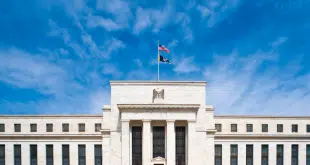Osama Bedier, vice president of Google Wallet and payments at search-engine giant Google Inc., has left the company, Google said on Thursday. Sources tell Digital Transactions News that Sridhar Ramaswamy, Google’s senior vice president of ads and commerce who also manages search advertising and shopping services, is now heading up the mobile-wallet program that is built on near-field communication (NFC) technology.
“We can confirm that Osama Bedier has decided to leave Google this year to pursue other opportunities,” a spokesperson told the Silicon Valley newsletter VentureBeat, which broke the story. “He’s achieved a lot during his time here, and we wish him all the best in his next endeavor. Payments are a big part of what people do every day, and we’re committed to making them easier for everyone.”
The spokesperson tells Digital Transactions News that the Mountain View, Calif.-based company would not comment further.
Bedier came to Google in early 2011 from PayPal Inc., where he managed mobile payments. With Google's dominance of the Internet search-engine market, payments-industry executives and analysts expected Goggle Wallet to make a big splash, but so far it’s produced little more than a ripple. NFC proved to be a hard sell for merchants, which would have to reconfigure their point-of-sale systems to accept payments from NFC-enabled smart phones, and the relatively few NFC handsets in the U.S. limited its reach.
Google last August solved part of its problem by introducing what Bedier called Version 1.5 of Google Wallet, which retained NFC for identification of the mobile device to the merchant terminal, but moved payment credentials from a secure element inside the phone to Google servers in a so-called cloud configuration.
It’s unclear whether Ramaswamy will head Google Wallet on a temporary or permanent basis, and what, if any, changes, he may have in mind for it. Google’s various advertising services bring in the vast majority of the company’s revenues. At a payments conference last October, Bedier indicated that Google would be launching what he called Version 2.0 of the wallet in about a month. Seven months later, that version has yet to be launched.
Bedier's departure “is no surprise and has been discussed in the industry since earlier in the year, when Osama's boss, Jeff Huber, was reassigned,” says payments consultant Steve Mott, principal of Stamford, Conn.-based BetterBuyDesign in an e-mail. “I think it marks the full transition of mobile ‘payments’ as potentially a separate line of business—as [the former online-payments service] Google Checkout once was—to embedding mobile transacting into the mainstream Ads business.”
But mobile-payments analyst Rick Oglesby of Boston-based Aite Group LLC, says he doesn’t expect that Bedier’s leaving “will hold up wallet progress significantly.” He notes that the big Google I/O 2013 conference for software developers begins May 15 in San Francisco.
“I expect some announcements very soon as to the next steps for Google Wallet,” Oglesby says by e-mail. “I expect Google will continue to plow forward in their wallet efforts; the opportunity is too big to just walk away.”
Since Bedier left PayPal, that company with its non-NFC model has gone on to dominate mobile payments. PayPal processed $14 billion in mobile volume last year, $4 billion more than it predicted, and is shooting for $20 billion this year.
Aaron McPherson, practice director of worldwide payment strategies at IDC Financial Insights in Framingham, Mass., notes by e-mail that Bedier “could have stayed on the winning team. If I was running things at Google, I'd abandon NFC for now and go all-out on a cloud wallet, leveraging Google Offers,” he says in reference to Google’s service that sends merchant offers to consumers.
McPherson adds that it’s unclear what Google’s position on NFC is, but ultimately “I still expect them to be a major player.”
Mott also expects Google to be a force in payments, though he says payments likely will be subservient to advertising-based services. He says a major company goal is to leverage its leading Android operating system for mobile devices.
“The Ads folks at Google make a ton of money, take no prisoners, and are likely to waste little time with all the nuances of our arcane payments system as it transitions to digital,” Mott says. “It's likely, then, that Google will be tinkering less with how to work through the various ins and outs of the POS infrastructure, and focus more on how to leapfrog this hide-bound system in order to tool up Android phone users to transact as directly as possible through the cloud.”







